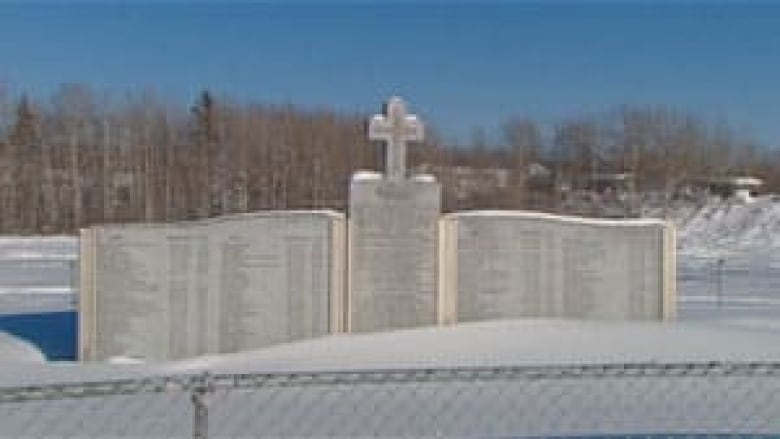N.W.T. aboriginal leaders angry after Catholic groups released from raising money
Groups raised about $4 million of $25 million goal for healing programs for former residential school students

Northern aboriginal leaders say they are furious that a court ruling let Catholic groups off the hook from fundraising tens of millions of dollars for healing programs for former students of residential schools.
The 2006 Indian Residential School Settlement required Catholic groups to pay compensation for its role in the abuse and trauma inflicted on thousands of aboriginal children.
The agreement required the Catholic entities to pay $29 million in cash to the now defunct Aboriginal Healing Foundation, $25 million in "in-kind" services, and to try and fundraise $25 million for healing programs for former students.

Pierre Baribeau, a lawyer for the Catholic groups told CBC that raising $25 million was simply a goal and that the settlements agreement states the Catholic groups were only obligated to put in their "best efforts."
The Catholic entities were able to raise about $4 million of that $25 million goal.
"We had a very difficult time convincing public corporations to consider giving money to a Catholic-related foundation," Baribeau said.
"Unfortunately, we did not get as much as one would have expected. The efforts were there and a lot of money was put into the campaign also."
Federal lawyer didn't intend to alter agreement
In 2013, when the Catholic groups fell $1.6 million short in payment requirements to the Aboriginal Healing Foundation, the federal government took the groups to court.
The lawyer for the Catholic entities, Gordon Kuski, and the lawyer for the federal government, Alexander Gay, began negotiations in hopes of settling.
In court documents, Kuski proposed to the federal government that the Catholic entities pay an additional $1.2 million and in turn be released from their duty to continue fundraising for healing programs for former students.
In the documents, the federal government suggests Kuski tricked Gay into that deal.

But a Saskatchewan judge ruled that responses from Gay and other federal lawyers led the Church to believe the deal was done. Gay testified that was not his intention and that he would never agree to such a deal, however last year a judge ruled the deal was binding.
Baribeau says he disagrees with Gay's testimony.
"The federal government put in writing, black and white, what we were willing to do so there's no misstep here. And the court also says it 'there's no misstep here.' It was clear from the beginning."
'The Church is still on the hook'
Northern aboriginal leaders say, regardless of legal wrangling, the Church still owes more to the Dene people who are still recovering from decades of trauma suffered at residential schools.
"As far as we're concerned the Church is still on the hook," says Chief Joachim Bonnetrouge of the Deh Gah Got'ie First Nation in Fort Providence, N.W.T.
Fort Providence was home to the Sacred Heart Mission, a Catholic-run residential school.
Dene National Chief Bill Erasmus says he doesn't believe the Catholic groups put forth their "best efforts."
"It's really bothersome because it's not like the church was broke. They have money. How does it look for the agreement? It doesn't make it look very good. If reconciliation is based on this agreement that we made, then we ought to follow it.
"Raising money doesn't necessarily mean going to the public. It could mean going to the Vatican."